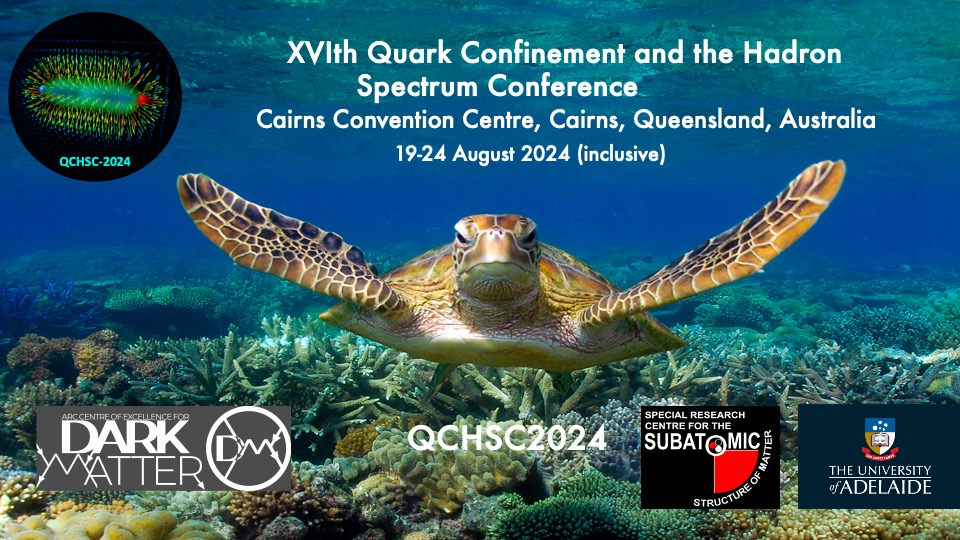Speaker
Description
The differential photon emissivity of the QGP is proportional to the transverse channel spectral function $\sigma(\omega)$ at lightlike kinematics.
Estimating the full energy-differential photon emissivity of a medium at thermal equilibrium from lattice QCD poses a challenge, as it involves a numerically ill-posed inverse problem. However, energy-integrated information on the photon emissivity can be obtained without confronting an inverse problem utilizing spatially transverse Euclidean correlators $H_E(\omega_n)$ evaluated at imaginary spatial momenta.
Employing two flavors of $\mathcal{O}(a)$-improved Wilson fermions, we have performed measurements with very high statistics using stochastic wall sources. For this study, we are using three ensembles with lattice spacings in the range of $0.033-0.049\,$fm, thus allowing for a continuum extrapolation of the first two energy-moments $\sigma(\omega)/\omega$ at a fixed temperature $T \approx 254\,$MeV.
As the inserted momenta needed for the second energy-moment are of $\mathcal{O}(3\,\text{GeV})$, one faces a severe signal-to-noise problem. In adressing this issue, we have modelled the tail of the integrand with two-state fits and also bound the result from above using a bounding method. This allows for a comparison of the difference $H_E(\omega_2)- H_E(\omega_1)$ to the weak-coupling prediction by Arnold, Moore and Yaffe without the weak-coupling uncertainties associated with the very soft photons.

